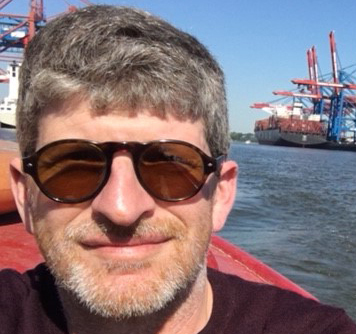For budding young scientists, especially those in the life sciences, it’s almost a rite of passage: you finish your PhD and then leave Canada to do post-doctoral research. The destination, more often than not, is the United States. “You stay there until you become marketable for a faculty position,” says Stephane Angers, a 34-year-old assistant professor at the Leslie Dan Faculty of Pharmacy. In fact, many end up pursuing an academic career south of the border.
Prof. Angers is studying how various diseases cause the body’s routine cellular signals to go awry, and is developing strategies to prevent this miscommunication. He earned his undergraduate degree at McGill University, completed his doctoral thesis at the University of Montreal and then did four years of post-doctoral work in Seattle at the Howard Hughes Medical Institute on the University of Washington campus.
n 2006, Angers faced the difficult decision of where to establish himself. Typically, American universities entice talented researchers with substantial funds to set up their own labs – from $800,000 to $1 million, says Angers. Traditionally, Canadian universities haven’t been as generous, forcing scientists to share lab space, equipment and research assistants. “In Canada, those start-up funds could be as low as $75,000 or as high as $300,000,” he says. U of T’s offers were usually at the higher end of this range, but were still well below what peer American institutions offered.
Since 2000, however, the Canada Research Chairs program and Canadian Foundation for Innovation have gone a long way toward correcting the imbalance by helping persuade talented academics to either return to Canada or immigrate here. The foundation is an 11-year-old federal program that helps underwrite the capital costs of cutting-edge research especially the purchase of state-of-the-art lab equipment. It awarded Angers a one-time grant of $400,000, which topped up funds that U of T and the Ontario government provided. Coupled with a Canada Research Chair salary of $100,000 a year for five years, the conditions for Angers to come back to Canada became “much more competitive,” he says.
Angers isn’t the only scientist to have returned home. U of T holds 257 Canada Research Chairs, 34 of which have been filled by academics who were recruited back to Canada. Another 40 have immigrated here from abroad. The Canadian Foundation for Innovation has played a major role in this brain gain. U of T has received $36.5 million in foundation grants associated with Canada Research Chairs.
Since 1997, the foundation has committed $3.8 billion to almost 6,000 projects at 128 research institutions. The upshot is that when U of T and other Canadian universities go to the U.S. to bring back homegrown academic stars, a foundation grant and Canada Research Chair salary guarantee prove to be highly effective magnets. “It makes a difference,” says Angers.






No Responses to “ Brain Gain ”
[...] to University of Toronto Magazine, Canadian researchers may also be part of the "reverse brain drain" happening in Canada right now. The magazine [...]